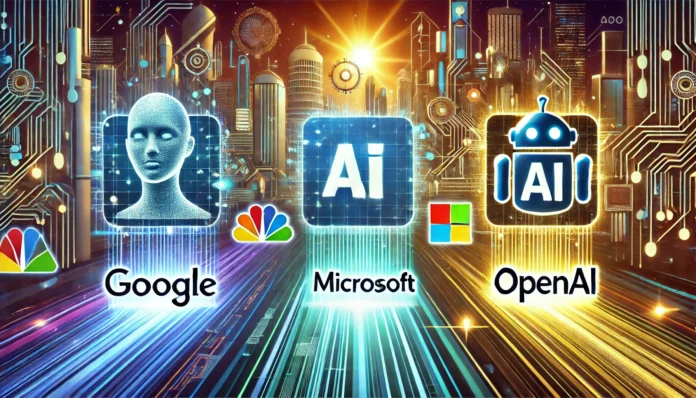As artificial intelligence (AI) continues to reshape industries globally, the race among tech giants to lead in AI innovation is accelerating. This week, notable tech firms such as Google, Microsoft, and OpenAI revealed new advancements in AI technology aimed at making these tools more accessible, efficient, and powerful than ever.
Google’s AI Surge with Gemini
Google recently announced enhancements to its Gemini AI model, aiming to integrate it more deeply into search and productivity tools like Google Workspace. The updated model, designed for quicker response times and richer user interactions, reflects Google’s commitment to leveraging AI to simplify daily tasks.
Microsoft Expands Copilot Integration
Microsoft, a significant player in the AI space, unveiled broader integrations for its AI-powered Copilot feature across platforms like Microsoft Office and LinkedIn. By embedding AI directly into its suite of productivity tools, Microsoft hopes to redefine workplace efficiency. The Copilot update now offers features like real-time meeting summaries, advanced data analysis, and seamless content creation tools.

OpenAI’s Multi-modal Capabilities
Meanwhile, OpenAI continues to innovate with multi-modal capabilities for its GPT series, allowing users to engage with text, image, and even audio inputs. The update aims to create a more versatile user experience, broadening the AI’s applicability in fields from education to content creation.
The Market Impact and Future Outlook
These developments have investors buzzing, as AI stocks surge on optimism over AI’s expanding potential. As the demand for AI-driven tools grows, tech companies are positioned to see substantial returns on their investments. However, this rapid growth also raises ethical concerns, as calls for AI regulation intensify to ensure responsible development.
In the coming months, consumers and businesses alike can expect new features, greater accessibility, and even faster performance from AI tools. The tech giants are on a mission to dominate the AI landscape—and it’s just getting started.


